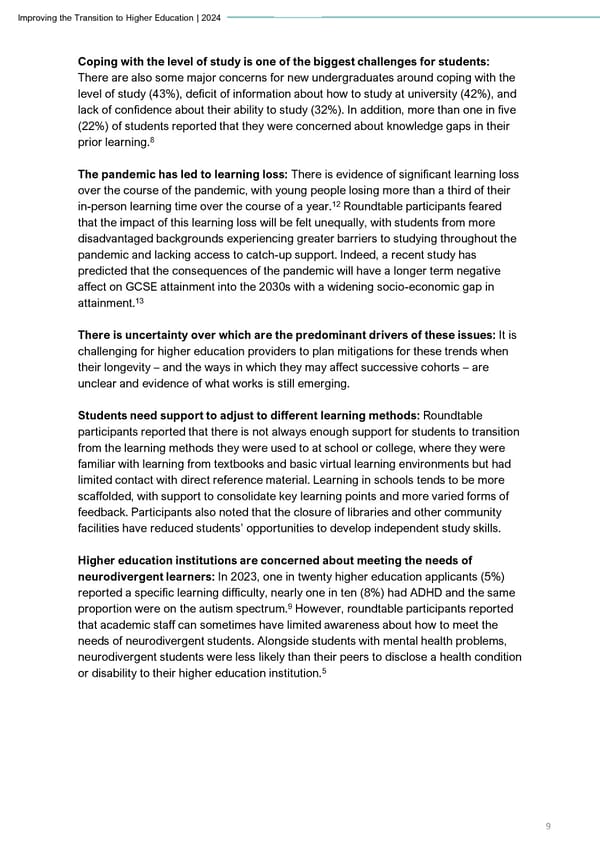Improving the Transition to Higher Education | 2024 Internal Coping with the level of study is one of the biggest challenges for students: There are also some major concerns for new undergraduates around coping with the level of study (43%), deficit of information about how to study at university (42%), and lack of confidence about their ability to study (32%). In addition, more than one in five (22%) of students reported that they were concerned about knowledge gaps in their prior learning.8 The pandemic has led to learning loss: There is evidence of significant learning loss over the course of the pandemic, with young people losing more than a third of their in-person learning time over the course of a year.12 Roundtable participants feared that the impact of this learning loss will be felt unequally, with students from more disadvantaged backgrounds experiencing greater barriers to studying throughout the pandemic and lacking access to catch-up support. Indeed, a recent study has predicted that the consequences of the pandemic will have a longer term negative affect on GCSE attainment into the 2030s with a widening socio-economic gap in attainment.13 There is uncertainty over which are the predominant drivers of these issues: It is challenging for higher education providers to plan mitigations for these trends when their longevity – and the ways in which they may affect successive cohorts – are unclear and evidence of what works is still emerging. Students need support to adjust to different learning methods: Roundtable participants reported that there is not always enough support for students to transition from the learning methods they were used to at school or college, where they were familiar with learning from textbooks and basic virtual learning environments but had limited contact with direct reference material. Learning in schools tends to be more scaffolded, with support to consolidate key learning points and more varied forms of feedback. Participants also noted that the closure of libraries and other community facilities have reduced students9 opportunities to develop independent study skills. Higher education institutions are concerned about meeting the needs of neurodivergent learners: In 2023, one in twenty higher education applicants (5%) reported a specific learning difficulty, nearly one in ten (8%) had ADHD and the same proportion were on the autism spectrum.9 However, roundtable participants reported that academic staff can sometimes have limited awareness about how to meet the needs of neurodivergent students. Alongside students with mental health problems, neurodivergent students were less likely than their peers to disclose a health condition or disability to their higher education institution.5 9
 Improving the transition to Higher Education Page 8 Page 10
Improving the transition to Higher Education Page 8 Page 10